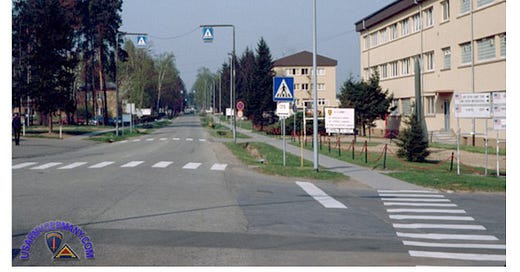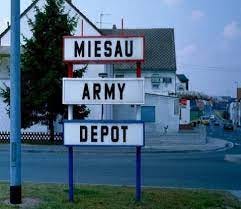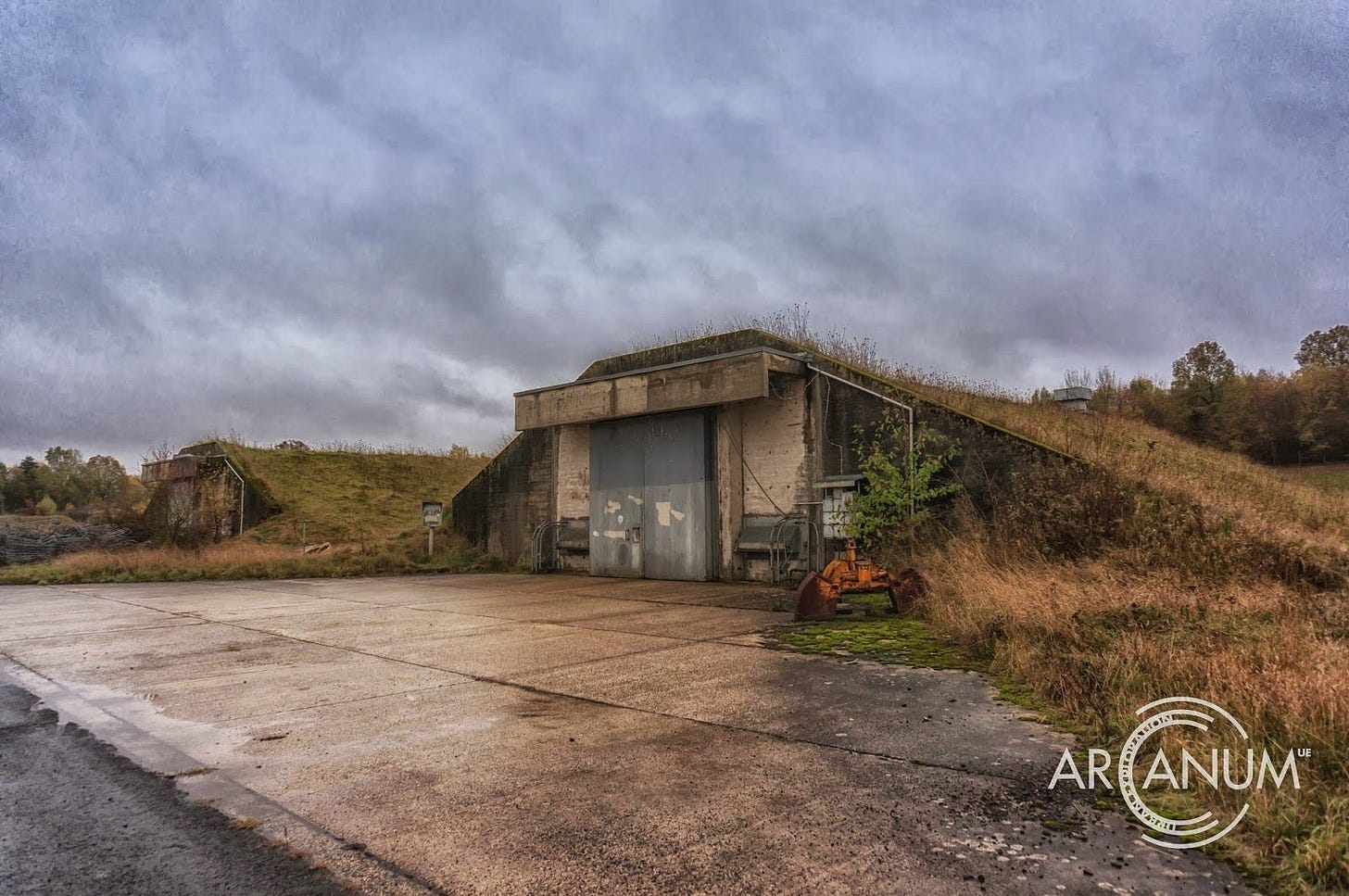Memoirs of a Dungeons & Dragons Player
In which we explore my odd history with the game. Part one of more to come.
My first exposure to Dungeons & Dragons came while I was in college, in Eugene, Oregon, which puts it late 1975 or early 1976. One of the deans, Royal Ewing, was trading free lessons with me. On any given weekend I taught his son and him fencing, and in return he taught me soaring, or sail-planing — how to pilot a glider plane.
One afternoon he invited me over to his place to try out this new game he’d picked up in some hole-in-the-wall head shop that also carried interesting oddities. I think he described it this way: “You play heroes like in Lord of the Rings, exploring dungeon ruins. At first the monsters you fight are easy. But every time you go a level deeper they get harder.”
It didn’t immediately interest me, so I put it off.
A little later on Roy was fired to make room for a younger female dean, and he had to move away almost immediately to find another academic position. Our trading-lessons hadn’t progressed too far by then. I never got to solo in a glider. I’m not sure he learned enough swordplay to acquit himself honorably in a duel with passing Tibalts. And I never followed up on that game he wanted me to play.
About two years later I was in Germany, guarding (and occasionally transporting, and learning to blow up) nuclear weapons, out in a secret location in the woods. Coming off of the tower line one evening Mike Sinner invited me to a Dungeons & Dragons game being hosted back in the barracks, run by a quirky fellow from the 2nd platoon named Doc Beck (all of the odd ones seemed to end up in the 2nd platoon).
The 164th Military Police Company barracks is the building mid photo, lurking behind the blue crosswalk sign. The X Area is about three miles down that road, past many gates and guards.
Guarding nukes in a secret site never visited by enemy agents, various ne’er-do-wells, or members of the Baader Meinhof Gang, mostly involves sitting in a tower and watching grass grow. So, by this time I was bored enough to accept immediately.
I was skeptical when I found out there was no game board and no hard and fast rules for the players. “You don’t need to worry about the rules,” Doc said. “Only I need to know the rules. Your only responsibility is to try to do things, which may work and may not.” But shortly thereafter we were down among the kobolds, fighting for our lives, and I was hooked.
The game caught on with a large fraction of the 200 or so members of the 164th MP Company. Soon enough we were running games constantly in the barracks, and also out in the X Area (Army lingo for Exclusion Area, which means “nobody will ever know we have nukes here”). How were we able to do this?
A man on duty in a tower wasn’t allowed to read a book, or do anything else that might take his attention away from constantly scanning the area outside the wire. But he could talk on the land lines (telephones) to one of the other towers, or to many of the other towers, or to those running things in the Front Room. Radios were for official communications, but the land lines were for informal chatter. Since one could chat away on the phone and still watch the important grass grow, they didn’t violate the rules. In fact chatting with the others was encouraged, since it meant you weren’t up there sleeping.
By that time I had moved to take a place in the Front Room, as the communications guy (it was a position reserved to sergeants E-6 or above, but since none of them could pass the required test, and I could, even though I was a lowly Private E-2, I got the job). The commo guy was also one of the two Key Men, who controlled one set of the keys needed to get into the bunkers which held the nukes. It took two keys to open each bunker, and no one person could ever be allowed to hold both keys (lest he be gunned down without benefit of a warning or trial). You need to get at the nukes? I’ll give one of the keys to one of your guard escorts, the other Key Man (who also ran the front window check-point at which folks passed into and out of the X Area) gives a key to a different guard escort, and off you go.
Bunkers in the X Area (the site has been long closed). Two keys, and hydraulic jacks, needed to unlock the doors, and then only after the MP escorts call in to the Front Room for the code to be allowed to open one up.
Trivia: When the godless commies poured over the Eastern boarder, as they were poised to do at any moment, our job at this X Area was to prepare all the warheads for demolition. We couldn’t let them fall into enemy hands, and since (theoretically) nukes won’t sympathetically detonate, you can just wire them to enough plastique and blow them to Kingdom Come. It was estimated, once the balloon went up, and World War Three commenced, the Soviet troops could get to us in as few as four hours. Therefore we had two hours to prepare the entire site for demolition, which we practiced doing many times. But here’s the rub. Once the place is ready to blow, before hitting the switch, everyone gets to evacuate to a safe distance (eventually all the way to Ramstein Air Force Base, with its better chow). Everyone gets to evacuate except for two people. Since the keys to the bunkers can never be allowed to leave the X Area, and since they can never just be left behind, under no one’s possession, the two Key Men have to stay and get blown up along with the nukes. I wonder if that had anything to do with how few were able to pass the test to get those jobs?
But how did we digress so far off topic? We already know World War Three didn’t happen. The godless hun didn’t pour over the East German boarder. And I never got my fine self blown to bits to protect the keys to any nuke bunkers.
Can we get back on topic, please?
Since I ran the communications center for the site (including radio, land lines, and the sensors attached to each bunker door), I was able to link all of the towers together for a game of Dungeons & Dragons. I was the GM, allowed to have books and dice and such in the Front Room. Those out in the towers were the players. They couldn’t roll their own dice though. That would have been a distraction.
Tower One at the X Area was actually attached to the Front Room building. This pic was clearly taken after the site was abandoned and allowed to go to seed.
At first I rolled all of the dice for each player, and they had to trust in my honesty. But that didn’t work too well, since few have ever trusted in my honesty. I was after all on record as eventually wanting to make my living by telling lies.
We solved this by bringing the Old Farts in on the game. In addition to the two people actually working there, me at the commo station and someone else (a bit of a dick of an E-4 specialist whose name escapes me) at the front window, there were a bunch of sergeants whose jobs were to — well, to be honest, they didn’t do much at all. They filled out reports, slept in the back bunks, and complained about the food. And once in a great while one of them would get up off of his enormous ass and walk the tower line to make sure everyone in the towers was still alert and not sleeping. But mostly they hung out.
The Old Fart sergeants wanted nothing to do with the game, and thought it exceedingly silly. But eventually I got one of them to volunteer to roll the dice for a couple of the players out on the line. Then others lobbied to become designated dice rollers too. Everyone in the room could hear the progress of the game and they began to like it when one of their dice rolls ended up causing something good to happen for a given player. Eventually all four (or was it five?) of the Front Room sergeants began competing for players. “Switch to me! I roll a ton more 20s than Sergeant Gilmartin! He rolls for shit!” one or another of them would claim. Then they’d brag to each other about which of them had the most players in their stable.
Once, when one of the players out on the line asked to switch from one Front Room dice roller to another, the rejected sergeant geared up (arms and armor), walked all the way out to the guy’s tower, to convince him to switch back to his dice rolling services. They took it that seriously.
The bunkers have gone to seed too.
Our shift in the X Area lasted for twelve hours a day, eight days in a row. We played D&D for the entire time. We’d go back to the barracks afterwards and continue the game. Who needs sleep? Then, after eight days in the towers we’d get a four day break, during which we staked out someone’s room, or one of the common rooms, and played more.
Many on the post ridiculed our love of the game. But these same people were so bored out of their minds they either got caught sleeping in the towers, which had terrible consequences, or they went quietly whackadoo, and did something worse than sleeping on duty. More than one Tower Rat (as we called ourselves) decided to fire off shots, at rabbits, at imaginary intruders, or even at one or more of the other towers.
We played D&D, kept our imagination engaged, and more or less stayed sane.
Among the things we couldn’t understand about the rules though was the frequent subject of Gary Gygax’s occasional rants in Dragon Magazine. He claimed that he’d been running a regular game longer than anyone (true), and after years his players were only up to seventh level. Therefore there’s no way any other players could already be up to 19 and 20th levels, without cheating, or (worse) being part of a game run by a Monte Haul dungeon master (a DM that made it too easy on the players and gave away too much stuff).
We had players up around 20th level by the end of our long year of concentrated play, and we couldn’t figure out what we were doing wrong. We didn’t think we were being too easy and too generous with the gold and experience points, but here we were. How could this be?
The shack in the foreground makes me think this might not actually be one of the towers in our X Area, but it’s identical to most of the towers at our site. Wherever this is, it was manned by soldiers watching the grass grow.
A few years later I left the army for a job in the TSR Art Department. Every new employee at the time got a thirty minute “welcome to the show” interview with Gary Gygax. During my interview he asked if I had any questions for him. I brought up the dilemma of how our players rose so high in level so fast. That’s when he found out how often we played, and that’s when I found out most games back in the world took place for only a few hours a night, no more often than one evening a week — including Gary’s regular game.
“You boys may have played more D&D than anyone in the world,” he said, which made me oddly proud, and just a wee bit embarrassed.
I know our record, if it really was a record, has since been broken by a wide margin. There are D&D games that have been running steadily for more than 40 years. But, like the brief shining moment of Camelot, we held that first record — if it really was a record.
I didn’t play as much D&D after that. Oddly enough, working at TSR left one without a lot of time for gaming. And what time we did have was often spent skipping from game to game, play testing new rules and new adventures, on their way through the publication process.
Next: My Brilliant Career at TSR










I'm really looking forward to your autobiography. And this story gives good context to some of the scenes in Just Another Ranker.